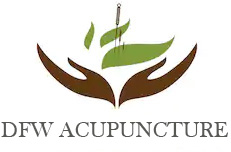Chinese Medicine for Digestive Disorders
Many people get the occasional heartburn or diarrhea from time to time, but when digestive problems become more frequent or continue for a longer period, it’s time to do something to address them. Do you have digestive issues? Some of the more common problems include:
-
gas,
-
bloating,
-
nausea,
-
vomiting,
-
heartburn,
-
constipation
-
diarrhea,
-
IBS,
-
colitis,
-
or some combination of the above
Causes can vary widely and may include emotional stress, poor dietary habits, antibiotic or drug use, or toxin exposure.Chinese Medicine views the digestive process a little differently than the way we think about it in Western medicine. According to this ancient system of medicine, food is first processed by the Stomach, where it is ‘ripened’ or broken down into its useful (‘pure’) and waste (‘impure’) components. Then the useful parts are directed to the Spleen/Pancreas, where they’re transformed into the nutrients, energy, blood and fluids your body needs, while the wastes are directed downward to the Small Intestine and ultimately the Large Intestine for excretion. Many gastrointestinal problems can be attributed to an imbalance in the Stomach, the Spleen or both, however we may need to look further.
The Liver, Gallbladder, Small Intestine and Large Intestine systems also play a critical role in the digestion process. When acid reflux/GERD or vomiting are present, they indicate that Stomach energy is moving upwards rather than in its usual downwards direction which can sometimes be caused by an overworked Liver. If the Gallbladder’s function of producing bile to break down fats is hampered it can cause issues in the Small Intestine where this occurs. If the Small or Large Intestine functions of eliminating waste are out of balance, you may experience bowel problems such as diarrhea, constipation, abdominal pain, bloating and gas. Through a comprehensive diagnosis, we can identify where things are out of balance and use our Chinese medicine tools to correct it.
Acupuncture, Chinese Herbs, and Diet Therapy are very effective at treating most all digestive problems. They can provide quick relief of the symptoms while addressing the underlying cause. The typical approach is to balance the Stomach and Spleen functions, and improve the breakdown of food, the transformation of nutrients, and elimination of wastes. With acid reflux or GERD, we look to reduce the frequency, intensity and duration of the symptoms and to repair any tissue damage caused by these conditions. With lack of bile production, we can stimulate it’s production. We may also need to regulate the elimination function of the Small and Large Intestines.
By treating the underlying imbalance and making dietary and lifestyle adjustments we can provide lasting relief, and prevent recurrence of the problem.Emerging science is proving our gut is our “second brain” and is proving healthy gut bacteria is the secret to dramatic weight loss, significant improvements in overall health, mood, energy, and mental function. Research is also showing what Chinese medicine has understood and has practiced for centuries. By maintaining the health of the spleen and stomach as well as the intestines, you have the basis for good health. As we fortify our digestive tracts, disease resistance and long term health improves.Modern research supports the use of Acupuncture and Chinese herbs to treat digestive issues.
The World Health Organization has published a long list of conditions that have been shown through controlled clinical trials to be treated effectively by acupuncture. These include nausea, vomiting, peptic ulcer, epigastric pain, and gastritis among others. Chinese herbal medicine can help address functional imbalance of the digestive organs, from the mouth and esophagus all the way down to the intestines and rectum. For example, research done in China has found that some herbs have anti-inflammatory and soothing effects on the intestinal walls.Numerous modern studies, many of them conducted at leading research and teaching institutes and in hospital settings, show that acupuncture, moxibustion and herbal medicine can bring about bio-chemical changes that affect the digestive system.For example, Low Gastric Motility/Gastroparesis is a condition that affects the stomach muscles and prevents proper stomach emptying into the intestines. The nerves and muscles in the digestive tract do not function properly, which can lead to frequent nausea, vomiting or acid reflux.
In a 2007 University of Arizona study, people with chronic heartburn who didn’t respond to prescription antacids underwent twice-weekly acupuncture. Their symptoms improved far more than those people who took a double dose of the antacids. Their chest pain decreased 82 percent, heartburn dropped 83 percent, and acid reflux fell 77 percent. Researchers believe that the acupuncture treatments used in this study caused a decrease in stomach acid and speed up digestion, so less acid backs up into the esophagus.Acupuncture for digestive problems is a safe and effective way to naturally treat many acute and chronic conditions of this important body system. If you’ve tried conventional medicine to keep digestive problems in check without success, consider acupuncture. If your digestion is in tip-top shape, then please share this information with your neighbor or family member who suffers from digestive issues.
By following these five tips, you will improve not only your digestive health, but your overall health and well being.
-
Eat warm foods. Did you know that the stomach functions the best when we put warm food into it? Iced beverages and cold foods, like frozen desserts, actually stress the stomach. Cold foods and liquids put out the “digestive fire” needed to efficiently break down your food and make nutrients available to your body.
-
Eat less. Eating only until we are 70% full is best for optimal digestion. Your stomach needs some room to digest the food you consume. This maximizes the nutrition you get from your food, and can even help you reduce weight. Recent studies have shown that in addition to cognitive benefits, eating less can increase longevity, improve the function of the nervous and immune systems, and reduce incidence of several diseases that are prevalent in our country, such as cardiovascular disease, cancer, respiratory disease, diabetes, kidney disease, neuro-degenerative diseases like Parkinson’s and Alzheimer’s, and autoimmune disease.
-
Eat in a calming environment. Like most Chinese medical practitioners, I recommend eating a meal in a relaxing environment (without reading/ watching the news etc) because this provides the optimum environment to process your food. When we eat while stressed or tense/anxious/angry/depressed etc, there is an impact to the Stomach causing the Stomach to ‘rebel’. This usually leads to nausea, vomiting, heartburn, or that sick feeling of having a knot in your stomach.
-
Eat light at night. Eating bigger, heavier meals late at night contributes to food stagnation, causing stomach discomfort and bloating. Long-term food stagnation can contribute to a feeling of heaviness and fatigue, and a tendency toward obesity and poor health. Morning is the time of day digestive organs have the most strength and ability to digest food. In the evening (after 8:00 pm) the strength of these organs is at their weakest and our ability to process and metabolize food is greatly diminished.
-
Light exercise helps promote digestion. An old Chinese saying is “Walk a hundred paces after a meal and
-
one can live ninety-nine years.” By taking a short stroll after a meal, you help your body move the food through your digestive system and can even lower your blood sugar. This is especially important after the evening meal when our metabolism is


